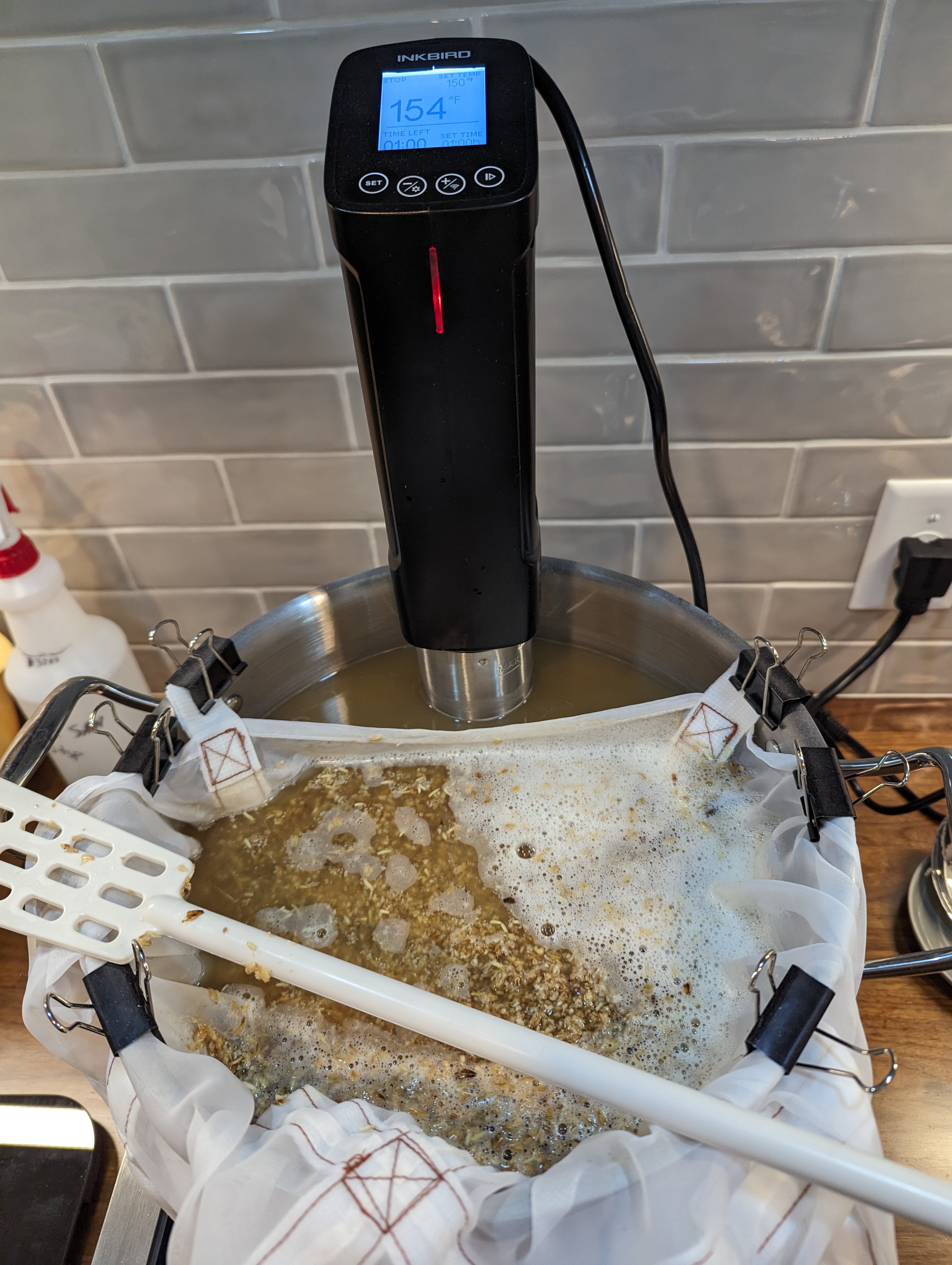It really depends on the material the element is made of. I took a brief look at the
@inkbird page for that element and didn't see any info on the element itself. If the element is Stainless Steel: ..."food-grade" SS is always passivated in manufacturing so by the time it reaches you, it is essentially non-reactive and if any minor flaws have passed on, it'll usually 'self-passivate' the first time you use it at brewing temperatures and remain non-reactive as long as you don't use anything too abrasive to clean it.
That said; Sous vide is not intended to come into contact with the food, thus freeing the manufacturer from any obligation to make it 'food-safe'.
Personally, I've set up a RIMS tube with a Dernoid SS element from brewhardware.com as it's a food-grade SS that won't leech at brewing temps...same with the Camco's.
I know there's a way to test for metals, but I'm not familiar with how that's done.




